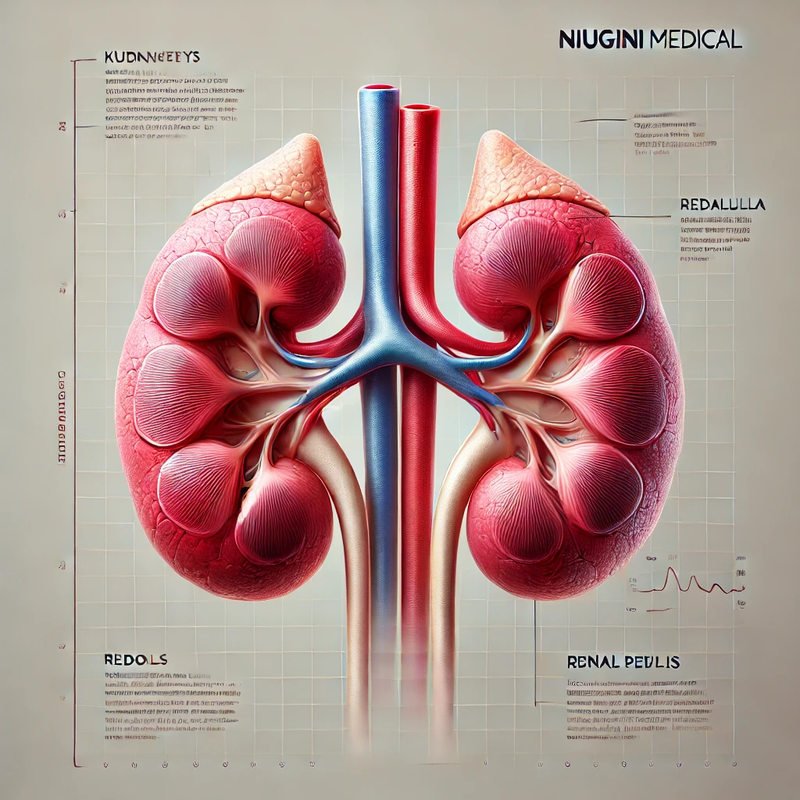Creatinine-Kidney Test

CREATININE BLOOD TEST
Question 1. What is creatinine?
Creatinine is the waste product of creatine, which the muscles uses to make energy. The bigger your body built or muscle mass, the higher your creatinine level is in blood. Normal levels in children are 50-100micromol/L where as in adult it is between 100-120micromol/L. Excess creatinine in blood is excreted by kidneys only and measurement of blood creatinine is a measure of how well kidneys are working.
Question 2. How is creatinine useful?
Creatinine is one of the common tests along with urea that is done to check health of kidney. In kidney disease, creatinine and urea are elevated because kidney tubes are unable to excrete them in urine. It is a rough measure of glomerular filtration rate (GFR) that is standard for assessing overall kidney function.
Blood creatinine is measured to detect kidney disease and along with urea and electrolytes, often called UEC or Urea, electrolyte & creatinine test.
Question 3. Where is creatinine measured?
Creatinine is measure as part of the overall assessment of kidney function in the following states:
Suspected kidney disease
Monitor treatment for kidney disease
Monitor dialysis
General health screen
Monitor medications that is known to cause kidney damage (e.g., gentamicin, cancer drugs)
Prior to major operation
Prior to x-ray contrast injection (contrast unsafe with bad kidneys)
Question 4. What types of samples used?
A simple venous blood is collected for measurement of creatinine almost always together with urea, and electrolyte and sometimes with liver function test.
Question 5. Is there any pre-test fasting recommended?
No.
However in many cases, you may be requested to fast 9-12 hours (from mid-night) as often glucose, cholesterol and other tests that require fasting sample may be done together. However, it is always good to disclose any medications that you are taking including herbal supplements as these can interfere with many blood tests.
Question 6. How is the test interpreted?
The typical reference range for serum creatinine is 50 to 120 micromoles per liter (mmol/L) and 45-90micromol/L for women. The higher the built or muscle bulk the higher the reference range and the lower the muscle bulk the lower the reference range. In children and elderly their reference ranges are usually less than 90microl/L.
Question 7. When is Creatinine falsely high?
Doctors interpret Creatinine results along with clinical findings and other kidney test results to avoid false diagnosis. Falsely high creatinine and hence diagnosis of kidney disease can occur in the presence of;
Use of wrong reference range
Dehydration (decreased blood flow to kidneys)
Interference by medications ,eg.,cephalosporins, trimethoprim, cimetidine (assay interferences)
Kidney obstruction by stones (back flow)
Ketone bodies in diabetics- (assay interference
High consumption of proteins (waste product of protein breakdown)
Intense exercise (muscle breakdown)
Question 8. How good is creatinine in detecting kidney disease?
Creatinine is increased when 60 % of kidney function is affected. Hence, in early stages when kidney function is still less than 60% affected creatinine level may still be normal. This also applies to urea level too.
Question 9. Is there any other advice?
Dietary choices and physical activity play an essential role in regulating blood creatinine levels. It is advisable to keep protein consumption within the recommended range for age and activity level before the test.
Always discuss with your doctor any abnormal tests.


